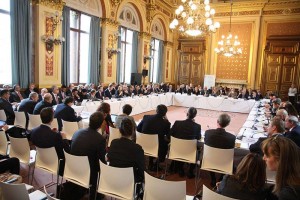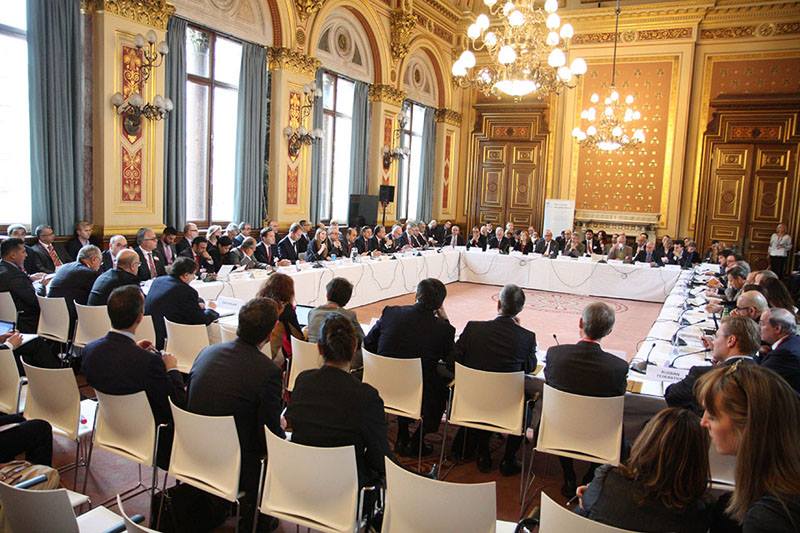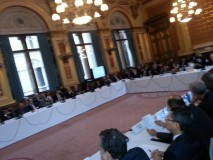By Libya Herald reporter.

London, 19 October 2015:
The UK and UNSMIL co-chaired a meeting of senior officials from 40 countries and international organisations . . .[restrict]and Libyan experts at the Foreign and Commonwealth Office in London yesterday.
The objective was to agree on how they would offer assistance to a future Libyan Government of National Accord (GNA) resulting from the Libyan political dialogue brokered by the UN.
Opening the gathering, UK Minister for the Middle East and North Africa, Tobias Ellwood pressed for the swift formation of the GNA.
The presence of ‘’so many countries and agencies here today and the seniority of their representation, reflects the depth and breadth of the international commitment to help the new Libyan government’’, Ellwood said.
The London conference was intended to be a ‘’technical meeting’’ setting out the assistance to be offered to Libya. It aimed at coordinating the support of the international community to ensure that it is effective and complementary. There were 147 projects of assistance for Libya already under consideration.
Delegates highlighted some lessons identified and what had worked well and what need to be done better the next time round. It was stressed that the GNA was the best long-term solution for Libya and that unfortunately ‘’some Libyans put their private personal interests above peace and stability of Libya’’.
It was accepted that the international community had ‘’failed to focus on politics and the political settlement’’.
Delegates admitted that they had believed their own rhetoric, believed that the National Transitional Council (NTC) was stronger than it was and agreed their efforts had been too technocratic.
The international community had also failed to recognise the threat of militias which the uncontrolled availability of arms had compounded. The situation in Libya had been fluid and evolving all the time.
It was also accepted that this time round the focus had to be on the political process. Moreover, the GNA would be the beginning of the process and not the end. The political dialogue in Libya should be ongoing, it was stressed.
It was further recognised that the militias ‘’needed something from the political process. They need to be part of the process’’. However, whilst it was felt that there needed ‘’to be a recognition of their power on the ground’’, this recognition should not result in ‘’strengthening them’’. It had to be recognised that ‘’Libyans did not vote for militias to rule them’’.
Ultimately, the issue of the militias in Libya could not be resolved by political means but needed to be resolved by economic measures. They need to be incentivised economically and given a stake in the new Libya.
It was felt that there was a need to be realistic and patient with the GNA. The damage caused by the Qaddafi regime to Libya and the Libyan people must not be underestimated. Libya’s capacity to absorb outside assistance offered after 2011 had been overestimated and therefore should not be overestimated again.
However, it was felt that Libyans must also fully accept the concept of foreign experts on the ground in the country. [/restrict]










